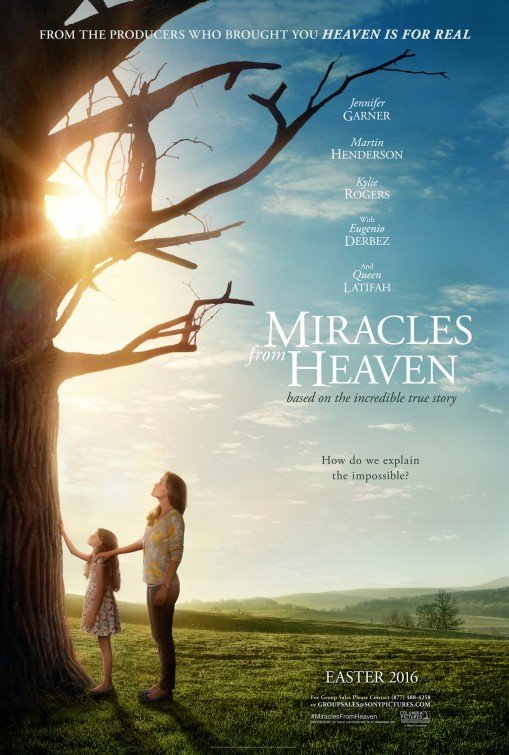
Major Tax Breaks Keep Hollywood in Pro-Life States Despite Calls to Boycott
By Movieguide® Contributor
Despite its outrage against the Supreme Court’s overruling of Roe v. Wade, Hollywood has yet to boycott filming and producing in states that restrict or ban abortions because of the significant tax breaks studios receive in those states.
Jonathan Kuntz, a film historian at the UCLA School of Theater, Film and Television, says, “If you’re talking about Supreme Court decisions and laws in state legislatures, there’s thousands of those all the time. Once you boycott one, some folks may see it as a slippery slope. That’s tricky. It’s very difficult for a large company to negotiate that.”
Movieguide® previously explored the possibility of Hollywood boycotts over pro-life laws, finding, that “Georgia’s $1.2 billion tax credit for film and TV production means it’s an attractive destination for production companies despite its restrictions on abortion.”
While many major companies, including Netflix, Disney and Warner Bros. Discovery, will cover employees’ abortion-related travel expenses, they still have not announced plans to boycott states that have banned or will ban or restrict abortion.
However, Hollywood is no stranger to inserting itself into a state’s abortion decisions. When Georgia passed its 2019 bill that banned abortions after the detection of a heartbeat, the industry, including Netflix, Disney, WarnerMedia and NBCUniversal, threatened to pull investments from the state if the law went into effect.
This time, though, Hollywood must evaluate whether they can pull filming from nearly half the country, “especially in states that collectively hand out billions a year in tax breaks to productions.”
A total of 36 states offer some form of tax breaks to Hollywood, and of the 22 states that have banned, restricted or will likely ban abortions, 15 offer tax credits to the entertainment industry.
For example, Georgia and Louisiana, two major Hollywood players that have or will likely restrict abortion, collectively distributed $2.11 billion in tax breaks to the industry in 2021.
Because these states offer “nearly half a billion dollars every year in free money,” studios are “unlikely to forego such massive tax breaks, which can make or break a production,” a physical production executive at a major studio told The Hollywood Reporter.
Instead of a mass boycott, The Hollywood Reporter believes that “decisions to pull investments from states with abortion restrictions may come from select studios and individuals.”
“I anticipate that some key individuals on productions, such as directors, producers and talent, are going to take the positions that they do not want to be in projects that are being produced in some states,” Ivy Kagan Bierman, chair of Loeb & Loeb’s entertainment labor practice, states.
However, the feasibility of a mass Hollywood boycott across over half the country seems impossible. “How do you do that when it’s so gargantuan in scope?” questioned Alexsiss Jackson, a Georgia-based director of photography.
Movieguide® previously reported on this topic:
In 2019, the entertainment industry threatened to boycott Georgia over its strict abortion laws.
Now, with the recent Supreme Court decisions, which overturned Roe v. Wade, individual states are equipped with the authority to legislate abortion as they see fit.
Despite Hollywood’s historic roots in California and the present democratic politics ensuring access to abortion for its residents, production companies continue to look elsewhere—even in pro-life states like Texas and Georgia.
This begs the question, why? When it comes down to it, even studios will buck the tide of the entertainment industry’s virtue-signaling culture if it means they can save money.
Economist and professor at Kennesaw State University J.C. Bradbury point out that Georgia’s $1.2 billion tax credit for film and TV production means it’s an attractive destination for production companies despite its restrictions on abortion.
“The subsidies to filming in Georgia are so great,” Bradbury said. “I think it’s going to be very hard for movie companies to turn down filming in Georgia no matter what the political ramifications are.”
However, as Georgia looks to mirror Texas with the establishment of a “heartbeat bill,” some cast and crew members fear that a boycott could become a reality.
Despite the conservative values of the state of Georgia as a whole, the film community in Atlanta said that legislators could expect a boycott from individual filmmakers as opposed to entire studios—a strategy evidenced in 2019 when BARB AND STAR GO TO VISTA DEL MAR “relocated out of Georgia due to the abortion bill,” Variety reported.
Questions or comments? Please write to us here.


 - Content:
- Content: 
 – Content:
– Content: 
